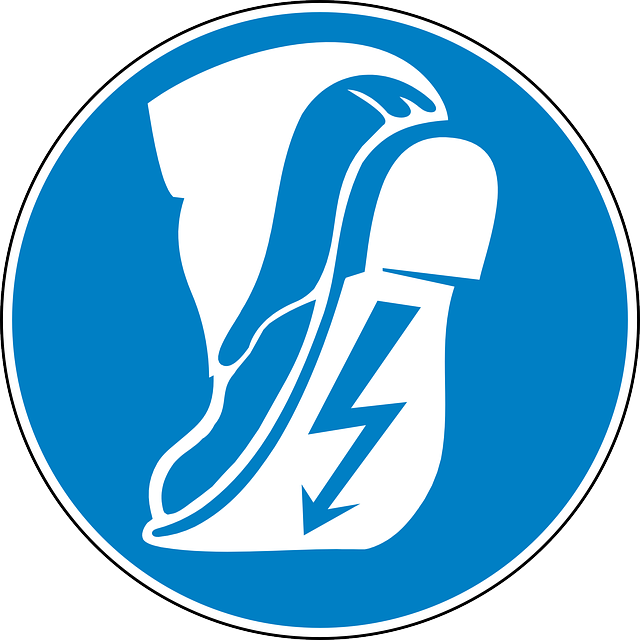Retailers prioritize customer safety and store integrity through comprehensive background checks on employees. These checks, which include criminal records, employment history, and reference verifications, help prevent retail theft and ensure staff align with retailer values. Adhering to legal standards like the FCRA, retailers must balance privacy rights with fair screening practices. Advanced digital systems streamline these processes, enhancing industry compliance and customer trust while mitigating risks in a competitive market.
In today’s competitive retail landscape, ensuring the integrity of your workforce is paramount. Screening retail workers for past disciplinary actions through comprehensive background verification processes isn’t just a best practice—it’s a necessity. This article delves into the critical components of retail employee screening, exploring legal considerations, technology’s role in enhancing compliance, and best practices to maintain staff credentials while fostering customer safety measures and preventing retail theft.
- Understanding the Importance of Retail Employee Screening
- Legal Considerations for Background Checks in Retail
- Components of a Comprehensive Retail Background Verification Process
- Implementing Effective Customer Safety Measures Through Checks
- The Role of Technology in Retail Industry Compliance
- Best Practices for Maintaining Retail Staff Credentials and Prevention of Theft
Understanding the Importance of Retail Employee Screening

In the dynamic and often high-pressure environment of retail, ensuring customer safety and maintaining store integrity are paramount. Background checks for retail employee integrity play a pivotal role in achieving these goals. Retail background verification processes help employers uncover potential red flags that may not be evident during initial interviews. These checks serve as robust customer safety checks, enabling retailers to mitigate risks associated with retail theft prevention. By delving into an applicant’s past, including their work history and disciplinary records, businesses can make informed decisions about hiring.
Retail industry compliance is heavily reliant on thorough staff credentialing. Retail employee screening helps maintain a culture of integrity within the workforce, fostering trust between employees, customers, and management. Effective retail background verification goes beyond simple identity checks; it involves assessing past conduct to predict future performance. This proactive approach ensures that retailers recruit individuals aligned with their values, contributing to a positive in-store experience for customers while adhering to legal requirements.
Legal Considerations for Background Checks in Retail

In the realm of retail, ensuring customer safety and maintaining store integrity is paramount. Background checks for potential employees are a critical component of this strategy, allowing retailers to make informed decisions that align with their operations and legal obligations. When conducting background verifications in the retail industry, it’s essential to navigate a delicate balance between protecting sensitive information and upholding privacy rights while adhering to local employment laws and regulations.
Retail employee screening involves careful consideration of various factors, including but not limited to criminal records, previous employment history, and personal references. These checks serve as powerful tools for preventing retail theft, especially considering the high-value merchandise often present in these environments. However, retailers must ensure that their practices are fair, unbiased, and compliant with laws like the Fair Credit Reporting Act (FCRA), which governs the use of consumer reports, including background checks, to protect individuals from fraudulent or inaccurate information damaging their employment prospects. Retail staff credentials should be thoroughly vetted to ensure they meet industry standards for customer safety while fostering a positive and secure shopping experience.
Components of a Comprehensive Retail Background Verification Process

A comprehensive background verification process for retail employees is an essential component of maintaining customer safety and ensuring retail industry compliance. This involves several key steps to thoroughly screen potential workers. Firstly, conducting a detailed review of their employment history and previous employers is crucial. This includes verifying job tenures, positions held, and reasons for leaving, as these insights can reveal patterns or issues that may be indicative of future behaviour.
Retail background checks should encompass more than just criminal records. They must include an examination of past disciplinary actions, such as warnings, suspensions, or terminations, which can provide valuable information about a candidate’s integrity. Additionally, checking references and conducting face-to-face interviews allows for further understanding of their work ethic and character. By integrating these components, retailers can effectively mitigate risks associated with retail theft prevention and foster a culture of trust and accountability among staff members.
Implementing Effective Customer Safety Measures Through Checks

In the competitive landscape of the retail industry, maintaining customer safety and ensuring retail employee integrity are paramount for success. One of the most effective strategies to achieve this is through comprehensive background checks and retail employee screening processes. By delving into the backgrounds of potential staff members, retailers can identify risks and mitigate issues like previous disciplinary actions or criminal records that may impact store security and sales integrity.
Retail background verification goes beyond standard employment checks. It involves meticulous scrutiny of an applicant’s history to detect any red flags related to customer theft prevention or retail industry compliance. These checks include verifying credentials, examining past employments, and uncovering potential character issues. Such proactive measures help retailers foster a culture of honesty and transparency among staff, ultimately enhancing customer trust and the overall shopping experience.
The Role of Technology in Retail Industry Compliance

In today’s digital era, technology plays a pivotal role in enhancing retail industry compliance and ensuring customer safety checks. Retail employee screening has evolved beyond traditional manual verification to include robust background check systems that integrate advanced data analytics and AI algorithms. These tools enable employers to conduct thorough retail background verification, uncovering potential risks or past disciplinary actions associated with prospective staff. By leveraging these technologies, retailers can mitigate the chances of retail theft and maintain a secure shopping environment.
Retail employee screening platforms offer comprehensive solutions for retail staff credentials management. They streamline the process, making it efficient and effective while adhering to legal requirements. These digital tools not only save time but also provide accurate insights into an applicant’s history, helping retailers make informed decisions. With real-time updates and comprehensive databases, these systems empower retailers to navigate the complex landscape of employee integrity checks, fostering a culture of accountability and trust within their workforce.
Best Practices for Maintaining Retail Staff Credentials and Prevention of Theft

Maintaining the integrity and security of a retail environment is paramount for businesses to protect both their assets and customers. One of the most effective strategies to achieve this is by implementing robust background checks for retail employees as part of their hiring process. Retail employee screening involves verifying the applicant’s work history, education, and any past disciplinary actions or criminal records. This practice helps identify potential risks and ensures that only trustworthy individuals are hired.
Retail industry compliance with these strict background verification procedures can significantly reduce the chances of customer safety issues and retail theft. By conducting thorough checks, employers can uncover any red flags or patterns in an employee’s history that might indicate a higher propensity for dishonest behavior. This proactive approach to retail staff credentials not only safeguards merchandise but also fosters a culture of trust and responsibility among the workforce.






